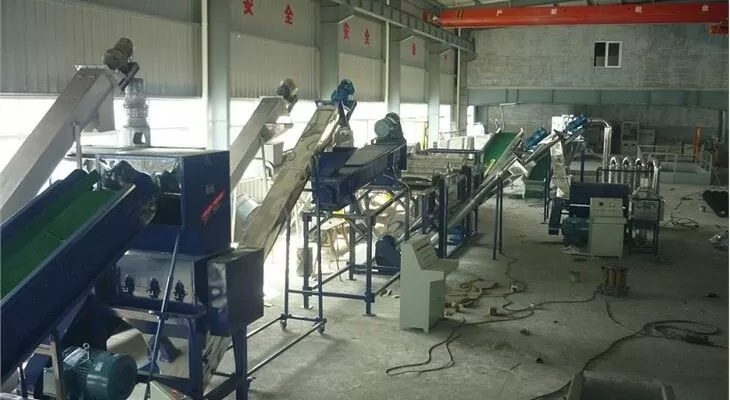Plastic bags are everywhere, but recycling them can feel like a puzzle. They take hundreds of years to decompose, making them a massive environmental threat. So, how do we get rid of them without leaving a mark on our planet? Recycling, of course, but that’s where the challenge begins.

Recycling plastic bags might seem like a tricky task, but there are simple solutions available. It’s not just about tossing them in your curbside bin and hoping for the best. Proper recycling takes a little extra effort, but once you get the hang of it, it’s as easy as pie. So, let’s break it down!
But before we dive deep into the steps, I want to set the stage: plastic bags are notorious for jamming up recycling machinery. Yet, their recycling potential is huge if we just know where and how to send them. That’s where you and I come in, ready to change the narrative on plastic waste!
Why Do Plastic Bags Need Special Attention?
Plastic bags are light, flimsy, and often end up in the wrong places. But what makes them different from other types of plastic waste? The answer lies in their material. Unlike hard plastics, plastic bags are flexible and tend to clog up machines at recycling facilities.
That’s why many curbside programs don’t accept plastic bags. They simply can’t process them without slowing down or damaging the equipment. If you throw your bags in with regular recyclables, they could end up costing more to fix the machine than they’re worth.
So, how do we fix this? It’s easier than you think.
Can You Put Plastic Bags in Your Curbside Recycling?
In most cases, no. Local curbside recycling programs don’t accept plastic bags due to the damage they cause to machines. But here’s where it gets interesting: there’s still hope for those bags!
The first step is to take them to designated collection points. Many stores and grocery chains have special bins for plastic bags. These bins are then sent to recycling facilities that specialize in handling flexible plastics, like the kind plastic bags are made from.
These facilities can process your bags in bulk, turn them into new products, and give them a second life. It’s a simple yet effective method that helps prevent plastic bags from ending up in landfills or our oceans.
How Can You Reuse Plastic Bags Before Recycling Them?
Before you even think about recycling, why not try reusing your plastic bags? Reusing is always the first step in the hierarchy of waste management. You can repurpose them for various tasks, such as trash liners, pet waste bags, or organizing your items.
Reusing plastic bags is not only eco-friendly, but it also reduces your need for new bags. It’s a small action that, when multiplied across millions of people, can make a huge impact on our planet.
But, let’s face it, sometimes you’ve just got too many plastic bags to reuse. That’s when recycling becomes the best option.
Where Can You Recycle Plastic Bags?
Plastic bags should not go into your curbside bin, but that doesn’t mean they can’t be recycled. The key is finding specialized drop-off locations or programs that will accept them.
Most grocery stores offer a plastic bag collection service. These bags are then sent to facilities that can recycle them into new plastic products, like composite lumber for outdoor furniture or even new bags! Some large chain stores even offer incentives, like coupons or discounts, when you return your bags for recycling.
By using these services, you’ll help close the loop on plastic bag usage. It’s not as hard as it sounds. Take those bags back to the store, drop them in the bin, and watch them be transformed into something useful.
Can You Really Make New Products from Recycled Plastic Bags?
Absolutely! Recycled plastic bags can be transformed into a variety of products. From sturdy outdoor furniture and decking to plastic lumber, the potential is endless. Recycling plastic bags helps reduce the need for virgin plastic production, making it an essential step in the circular economy.
Many companies are now using recycled plastic bags to create eco-friendly products. These efforts not only reduce plastic waste but also promote the use of recycled materials, which is critical for sustainable manufacturing.
What Happens If You Don’t Recycle Plastic Bags?
If you throw plastic bags into the trash or, worse, into the environment, they can have devastating effects. Plastic bags are known to take hundreds of years to break down. In the meantime, they can become a hazard for wildlife, clogging waterways and harming marine animals.
When you don’t recycle plastic bags, you’re contributing to the growing problem of plastic pollution. But don’t worry, it’s not too late to make a difference! By properly recycling and reusing plastic bags, we can significantly reduce their environmental impact.
What Can You Do to Encourage Others to Recycle Plastic Bags?
As with any positive change, it starts with education. Spread the word about plastic bag recycling. Share information with your friends, family, and colleagues. Encourage them to collect their bags and take them to recycling stations.
We can also push for more widespread recycling programs. Many local governments are still lacking adequate plastic bag recycling infrastructure, so advocating for these systems can help streamline the process.
Conclusion
Recycling plastic bags may not be as straightforward as tossing them into your curbside bin, but it’s definitely worth the extra effort. By reusing, recycling, and supporting proper collection programs, we can reduce the environmental impact of plastic bags. So, let’s make those bags a part of the circular economy and give them a second life!
That’s it! We’ve gone over how to recycle plastic bags in a way that’s easy and effective. If you’re not recycling them already, it’s time to start—your planet will thank you.
